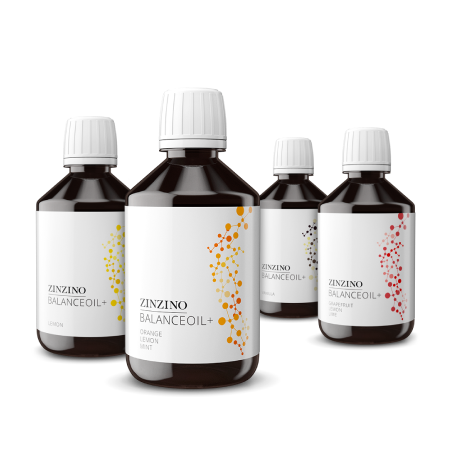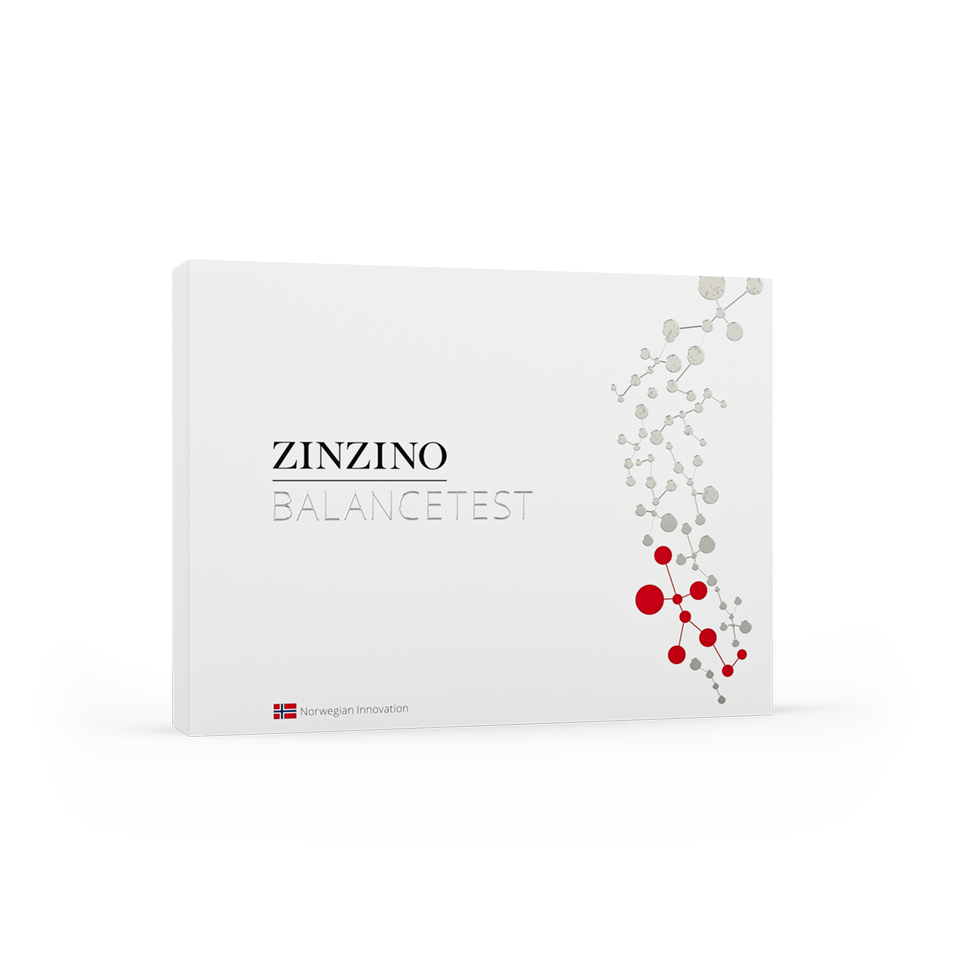Bernhard Schantl
Zinzino Independent Partner
Bienvenue à vous! Je suis votre consultant indépendant et je suis là pour vous guider tout au long de votre parcours de santé.
How fish oil & Omega-3 benefits overall well-being

Of all the dietary support available today, fish oil is one of the most widely used and enjoyed supplements. It’s especially common among people who don’t consume much seafood in general, as well as pregnant women. However, given the fact that the body doesn’t naturally make the Omega-3 essential fatty acids, everyone can benefit from taking these nutritional supplements.
Fish oil is essential
As the name suggests, this oil is the fat extracted from fish tissue, rich in Omega-3s, which include EPA, DHA, and DPA. The modern western diet contains more Omega-6 than Omega-3, which may distort the all-important ratio of fatty acids. The benefits of Omega-3 can’t be emphasized enough as our bodies need essential Omega-3 to function normally.
Fish oil is good for cholesterol and lower blood pressure
Omega-3’s EPA and DHA contribute to the normal function of the heart1, the maintenance of blood triglyceride levels2, and blood pressure3.
Beyond cardiovascular health, Omega-3 supports the maintenance of normal brain function4 and vision5. Heart, brain, and eyesight protection, alone, is a reason enough to take fish oil. Zinzino’s BalanceOil+, however, makes it non-negotiable.
BalanceOil+ is based on a scientifically certified measure of pure fish oil, pre-harvest extra virgin olive oil and naturally sourced Vitamin D3. Designed to gently restore the body’s Omega balance, adjust, and maintain EPA and DHA levels, and protect cells from oxidative stress6, this is so much more than fish oil.
Omega-3 helps more than the heart, brain & cell health
It helps maintain blood calcium levels7, normal bones8, muscle function9, teeth10, cell division11, and immunity12. Better still, oleic acid gives additional support to the heart, with the maintenance of normal blood cholesterol levels13.
Enjoy all 15 EFSA-approved health benefits, with a simple daily dose of BalanceOil+ (that’s based on an individual’s BalanceTest results).

To maximize fish oil health benefits, quality matters
The Zinzino BalanceOil+ range contains sustainably sourced fish oil derived from small pelagic fish such as anchovies, sardines, and mackerel, rich in Omega-3 fatty acids EPA and DHA. The product is certified by Friend of the Sea, the global certification standard for products and services that respect and protect the marine environment. It means that the fish oil is natural, molecularly tested for toxins to guarantee safety, freshness, and unparalleled purity. However, all high-quality, pure Omega-3 supplements go through a refining process that does not only rid the fish oil from contaminants, the polyphenols are lost, too. These powerful micronutrients packed with antioxidant capacities are naturally found in oily fish to stabilize oxidation, optimize absorption in the body and make sure the Omega 3’s get to work in the cell membranes of your body.
Extra virgin olive oil optimize absorption
Polyphenols from pre-harvest antioxidant-rich olives are the closest you’ll get to the ones found naturally in fish, and Zinzino was one of the first brands to add this antioxidant-packed ingredient to their scientifically proven formulation. The unique formulation of the Zinzino BalanceOil+ range is a synergistic blend based on 60% pure fish oil from wild-caught small fish and 40% cold-pressed, extra virgin olive oil with polyphenols from pre-harvest olives and Omega-9.
Every body is different and the level that your body will absorb the Omega-3 supplement also depends on individual factors, such as your weight, your stomach acid levels, gene type and even certain allergies. The Zinzino BalanceTest will reveal your unique fatty acid profile and guide you in choosing Omega-3 supplements that work with your body. Make sure to pick one such as BalanceOil+ that is safe, natural, and where serving sizes can be customized to your individual fatty acid profile.
* These statements have not been evaluated by the Food and Drug Administration. This product is not intended to diagnose, treat, cure, or prevent any disease.
1. DHA and EPA contribute to the normal function of the heart
DHA und EPA tragen zu einer normalen Herzfunktion bei. Die Angabe darf nur für Lebensmittel verwendet werden, bei denen es sich zumindest um eine EPA- und DHA-Quelle im Sinne der Angabe Omega-3-Fettsäure-QUELLE handelt, wie im Anhang zur Verordnung (EG) Nr. 1924/2006 aufgeführt ist. Um die gesundheitsbezogene Angabe tragen zu dürfen, muss der Verbraucher die Information erhalten, dass sich die positive Wirkung bei einer Tagesdosis von 250 mg EPA und DHA einstellt.
2. DHA and EPA contribute to the maintenance of normal blood
DHA und EPA tragen zur Aufrechterhaltung normaler Triglyceridwerte im Blut bei. Die Angabe darf nur für Lebensmittel verwendet werden, die eine Tagesdosis von 2 g EPA und DHA enthalten. Um die gesundheitsbezogene Angabe tragen zu dürfen, muss der Verbraucher die Information erhalten, dass sich die positive Wirkung bei einer Tagesdosis von 2 g EPA und DHA einstellt. Wenn die Angabe auf Nahrungsergänzungsmitteln und/oder angereicherten Lebensmitteln verwendet wird, muss der Verbraucher die Information erhalten, dass die ergänzende Tagesdosis von 5 g EPA und DHA kombiniert nicht überschritten werden darf. DHA trägt zur Aufrechterhaltung normaler Triglyceridwerte im Blut bei. Die Angabe darf nur für Lebensmittel verwendet werden, die eine Tagesdosis von 2 g DHA liefern und die DHA in Kombination mit Eicosapentaensäure (EPA) enthalten. Um die gesundheitsbezogene Angabe tragen zu dürfen, muss der Verbraucher die Information erhalten, dass sich die positive Wirkung bei einer Tagesdosis von 2 g DHA einstellt. Wenn die Angabe auf Nahrungsergänzungsmitteln und/oder angereicherten Lebensmitteln verwendet wird, muss der Verbraucher die Information erhalten, dass die ergänzende Tagesdosis von 5 g EPA und DHA kombiniert nicht überschritten werden darf.
3. DHA and EPA contribute to the maintenance of normal blood pressure
DHA und EPA tragen zum Erhalt des normalen Blutdrucks bei. Die Angabe darf nur für Lebensmittel verwendet werden, die eine Tagesdosis von 3 g EPA und DHA enthalten. Um die gesundheitsbezogene Angabe tragen zu dürfen, muss der Verbraucher die Information erhalten, dass sich die positive Wirkung bei einer Tagesdosis von 3 g EPA und DHA einstellt. Wenn die Angabe auf Nahrungsergänzungsmitteln und/oder angereicherten Lebensmitteln verwendet wird, muss der Verbraucher die Information erhalten, dass die ergänzende Tagesdosis von 5 g EPA und DHA kombiniert nicht überschritten werden darf.
4. DHA contributes to the maintenance of normal brain
DHA trägt zur Erhaltung einer normalen Hirnfunktion bei. Die Angabe darf nur für Lebensmittel verwendet werden, die mindestens 40 mg DHA pro 100 g und pro 100 kcal enthalten. Um gesundheitsbezogene Angaben machen zu können, muss der Verbraucher die Information erhalten, dass sich die positive Wirkung bei einer Tagesdosis von 250 mg EPA und DHA einstellt. Die Aufnahme von Docosahexaensäure (DHA) durch die Mutter trägt zur normalen Hirnentwicklung des Fötus und des Säuglings bei. Schwangere und stillende Frauen müssen informiert werden, dass sich die positive Wirkung bei einer Tagesdosis von 200 mg DHA zusätzlich zu der empfohlenen Tagesdosis für Omega-3-Fettsäuren für Erwachsene einstellt, d. h. 250 mg DHA und EPA. Die Angabe darf nur für Lebensmittel verwendet werden, die eine Tagesdosis von mindestens 200 mg DHA enthalten.
5. DHA contributes to the maintenance of normal vision
DHA trägt zur normalen Funktion der Augen bei. Die Angabe darf nur für Lebensmittel verwendet werden, die mindestens 40 mg DHA pro 100 g und pro 100 kcal enthalten. Um gesundheitsbezogene Angaben machen zu können, muss der Verbraucher die Information erhalten, dass sich die positive Wirkung bei einer Tagesdosis von 250 mg EPA und DHA einstellt. Die Aufnahme von Docosahexaensäure (DHA) trägt bei Babys bis zu 12 Monaten zur Entwicklung eines normalen Sehvermögens bei. Der Verbraucher muss die Information erhalten, dass sich die positive Wirkung bei einer Tagesdosis von 100 mg DHA einstellt. Wenn die Angabe auf Folgenahrung verwendet wird, muss das Lebensmittel mindestens 0,3 % der gesamten Fettsäuren als DHA enthalten.
6. Olive oil polyphenols
Polyphenole aus Olivenöl tragen zum Schutz der Blutfette vor oxidativem Stress bei. Der Ersatz von gesättigten Fettsäuren durch ungesättigte Fettsäuren in der Ernährung trägt zur Aufrechterhaltung eines normalen Cholesterinspiegels im Blut bei. Ölsäure ist eine ungesättigte Fettsäure. Die Angabe darf nur für Olivenöl verwendet werden, das mindestens 5 mg Hydroxytyrosol und dessen Derivate (z. B. Oleuropein-Komplex und Tyrosol) pro 20 g Olivenöl enthält. Um die gesundheitsbezogene Angabe tragen zu dürfen, muss der Verbraucher die Information erhalten, dass sich die positive Wirkung bei einer Tagesdosis von 20 g Olivenöl einstellt.
7. Vitamin D calcium levels
Vitamin D trägt zu einem normalen Kalziumspiegel im Blut bei. Die Angabe darf nur für Lebensmittel verwendet werden, bei denen es sich zumindest um eine Vitamin-D-Quelle im Sinne der Angabe VITAMIN-D-QUELLE handelt, wie im Anhang zur Verordnung (EG) Nr. 1924/2006 aufgeführt ist.
9. Vitamin D normal muscle function
Vitamin D trägt zur Erhaltung einer normalen Muskelfunktion bei. Die Angabe darf nur für Lebensmittel verwendet werden, bei denen es sich zumindest um eine Vitamin-D-Quelle im Sinne der Angabe VITAMIN-D-QUELLE handelt, wie im Anhang zur Verordnung (EG) Nr. 1924/2006 aufgeführt ist.
11. Vitamin D cell division
Vitamin D spielt eine wichtige Rolle bei der Zellteilung. Die Angabe darf nur für Lebensmittel verwendet werden, bei denen es sich zumindest um eine Vitamin-D-Quelle im Sinne der Angabe VITAMIN-D-QUELLE handelt, wie im Anhang zur Verordnung (EG) Nr. 1924/2006 aufgeführt ist.
12. Vitamin D contributes to immune system
Vitamin D trägt zur normalen Funktion des Immunsystems bei. Die Angabe darf nur für Lebensmittel verwendet werden, bei denen es sich zumindest um eine Vitamin-D-Quelle im Sinne der Angabe Vitamin-D-QUELLE handelt, wie im Anhang zur Verordnung (EG) Nr. 1924/2006 aufgeführt ist.
13. ALA trägt zur Erhaltung des normalen Blutcholesterinspiegels bei
ALA trägt zur Erhaltung des normalen Blutcholesterinspiegels bei. Die Angabe darf nur für Lebensmittel verwendet werden, bei denen es sich zumindest um eine EPA- und DHA-QUELLE im Sinne der Angabe OMEGA-3-FETTSÄURE-QUELLE handelt, wie im Anhang zur Verordnung (EG) Nr. 1924/2006 aufgeführt ist. Der Verbraucher muss die Information erhalten, dass sich die positive Wirkung bei einer Tagesdosis von 2 g ALA einstellt.



Share this page
Or copy link